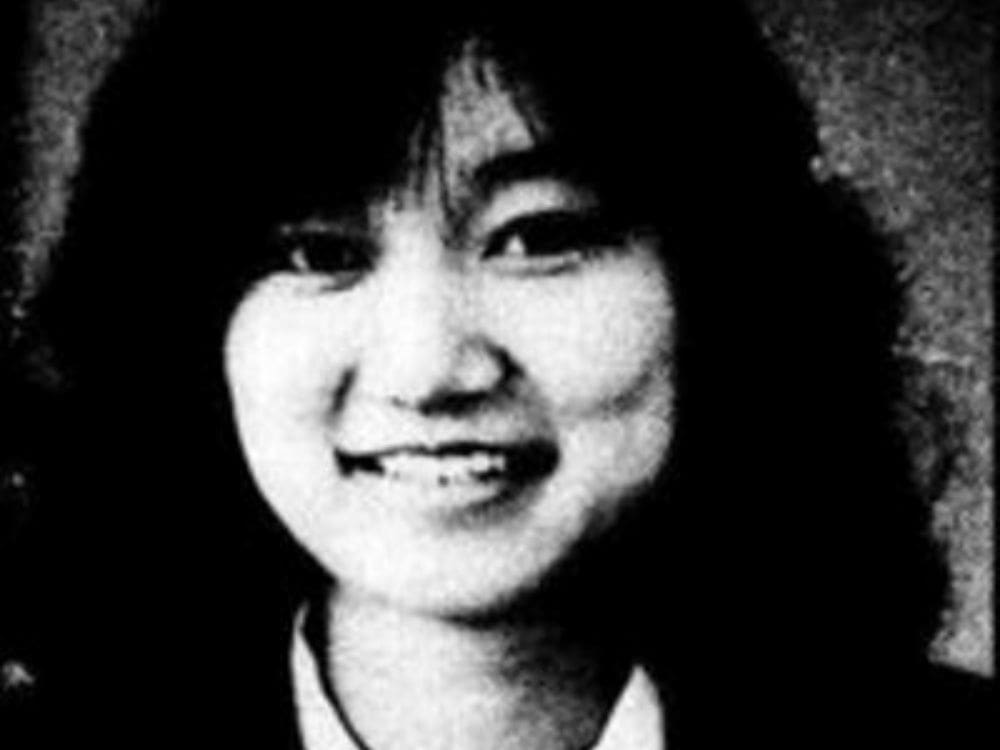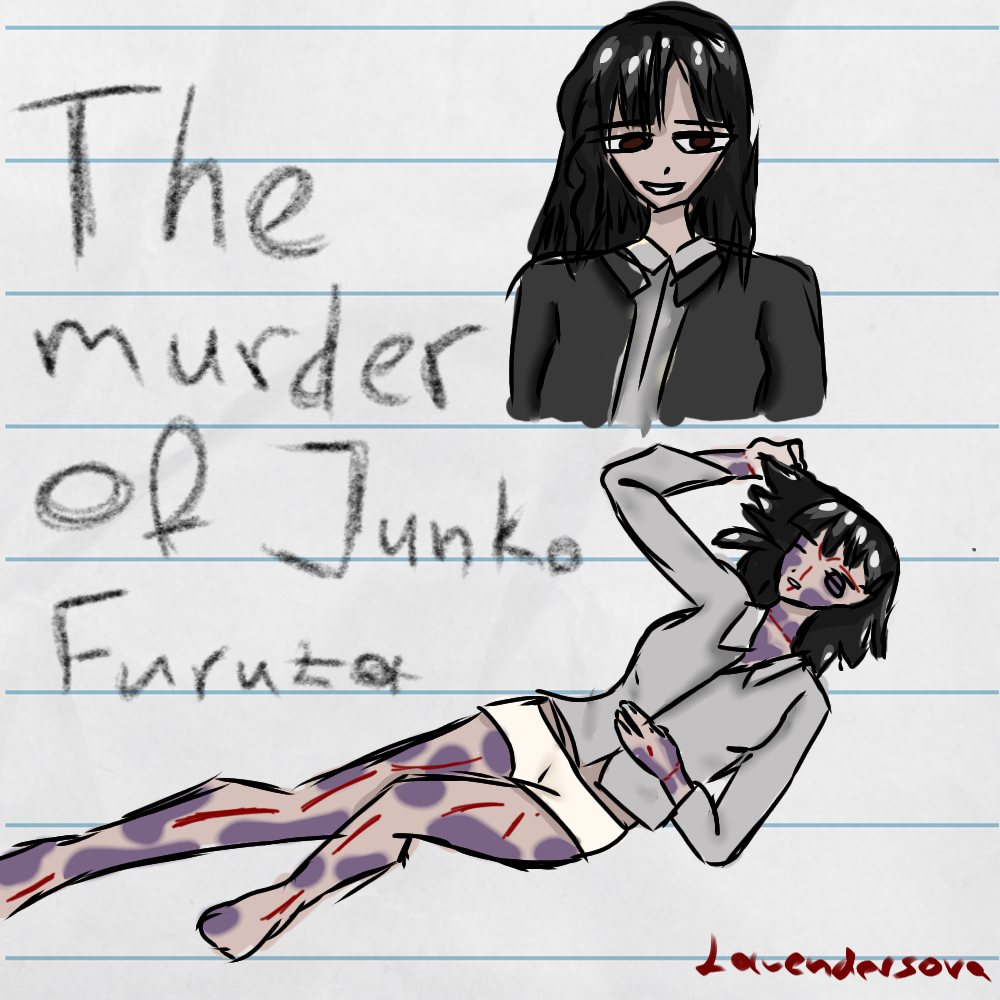Junko Furuta: The Dark Tale That Still Echoes In Japan
Some stories are so dark that they haunt a nation for decades. The case of Junko Furuta is one of those tales that continue to send shivers down the spine of anyone who hears it. It's a story that goes beyond the boundaries of crime and dives deep into the abyss of human cruelty. Junko Furuta's name has become synonymous with tragedy, injustice, and the darkest side of human nature. But what really happened? And why does this story still resonate so strongly today?
When you hear the name Junko Furuta, you might think it’s just another name lost in the annals of history. But this name carries with it a weight so heavy that it has become a symbol of everything that can go wrong in society. It’s a story that forces us to confront the darkest aspects of human behavior and the failures of a system that couldn’t protect its most vulnerable members.
This article dives deep into the life of Junko Furuta, the events that led to her tragic fate, and the lasting impact her story has had on Japan and the world. We’ll explore the details of the case, the psychological aspects, and the societal implications that continue to ripple through time. So, buckle up, because this is not just a story—it’s a lesson in humanity.
Read also:Erome Sunny Ray The Rising Star In The Digital World
Table of Contents
- Biography of Junko Furuta
- Early Life and Background
- The Horrifying Case
- The Perpetrators
- Media Coverage and Public Reaction
- The Legal Process
- Psychological Impact
- Societal Effects
- Lessons Learned
- Conclusion
Biography of Junko Furuta
Junko Furuta was a 17-year-old girl whose life was tragically cut short in December 1988. Her story has become one of the most infamous cases in Japanese history, and her name is forever etched in the memories of those who seek justice for victims of heinous crimes.
Personal Information
| Full Name | Junko Furuta |
|---|---|
| Date of Birth | March 23, 1971 |
| Date of Death | December 23, 1988 |
| Place of Birth | Kobe, Japan |
| Occupation | High School Student |
Early Life and Background
Junko Furuta was born on March 23, 1971, in Kobe, Japan. She grew up in a modest family and attended high school like any other teenager her age. But beneath the surface of her ordinary life lay a series of events that would eventually lead to her untimely death. Junko was described by friends and teachers as a bright and kind-hearted girl with a promising future ahead of her.
Her early life seemed unremarkable, filled with the typical ups and downs of adolescence. But little did anyone know that her life would take a dark turn that would shock the nation and leave an indelible mark on the collective consciousness of Japan.
The Horrifying Case
The events that unfolded in December 1988 are nothing short of horrifying. Junko Furuta was abducted by a group of four teenage boys on December 1st, 1988, after a volleyball match at her high school. The boys, who were classmates of Junko, lured her into a trap under the guise of discussing a volleyball competition. What happened next is a nightmare that no one should ever have to endure.
For 44 days, Junko was held captive in a toolshed behind one of the perpetrator's homes. During this time, she was subjected to unimaginable torture, including physical and sexual abuse. The perpetrators recorded her cries and screams, creating a chilling audio diary of her suffering. The level of cruelty exhibited by these young men is almost incomprehensible.
Details of the Crime
- Junko was abducted on December 1st, 1988.
- She was held captive for 44 days in a toolshed.
- She was subjected to severe physical and psychological torture.
- Her cries and screams were recorded by the perpetrators.
- She eventually died on December 23rd, 1988.
The Perpetrators
The four teenage boys responsible for Junko Furuta's abduction and murder were eventually caught and brought to justice. Their names were withheld from the public due to their age at the time of the crime, but their actions have left an indelible mark on Japanese society. The youngest of the group was just 14 years old, while the oldest was 17.
Read also:Brandi Passante Nude Xxx
What drove these boys to commit such a heinous act? Was it a lack of empathy, a desire for power, or something deeper? Psychologists and criminologists have debated this question for years, trying to understand the minds of those who perpetrate such atrocities.
Profile of the Perpetrators
- Four teenage boys aged between 14 and 17.
- All were classmates of Junko Furuta.
- Their identities were protected due to their age at the time of the crime.
- They were eventually sentenced to varying terms of imprisonment.
Media Coverage and Public Reaction
The media coverage of the Junko Furuta case was extensive and intense. The Japanese public was horrified by the details that emerged during the investigation and trial. The case sparked widespread outrage and calls for stricter laws to protect young victims and hold perpetrators accountable.
The media played a crucial role in bringing the story to light, but it also faced criticism for sensationalizing the details and potentially influencing the legal process. The public reaction was one of disbelief and anger, with many people demanding justice for Junko and her family.
Impact on Public Opinion
- The case led to increased awareness about the dangers facing young people.
- It sparked debates about the effectiveness of the juvenile justice system.
- Many people called for changes in the way society addresses issues like bullying and abuse.
The Legal Process
The legal process surrounding the Junko Furuta case was complex and controversial. The four perpetrators were tried as juveniles due to their age at the time of the crime. This meant that their identities were protected, and they faced lighter sentences than they would have if they had been tried as adults.
The court ultimately sentenced the perpetrators to varying terms of imprisonment, with the oldest receiving the longest sentence. However, many people felt that the sentences were too lenient given the severity of the crime. The case highlighted the challenges of balancing justice with the need to protect the rights of juvenile offenders.
Sentencing Details
- The oldest perpetrator was sentenced to 15 years in prison.
- The others received sentences ranging from 7 to 12 years.
- The sentences were criticized as being too lenient by many members of the public.
Psychological Impact
The psychological impact of the Junko Furuta case cannot be overstated. For Junko's family and friends, the trauma of losing her in such a brutal manner has left lasting scars. The case also had a profound effect on Japanese society as a whole, forcing people to confront the darker aspects of human nature and the failures of the justice system.
Psychologists have studied the case to better understand the minds of the perpetrators and the long-term effects of such trauma on victims' families. The case serves as a reminder of the importance of mental health support for those affected by violent crime.
Societal Effects
The Junko Furuta case had far-reaching effects on Japanese society. It led to increased awareness about issues like bullying, abuse, and the need for better protection for young people. The case also sparked debates about the juvenile justice system and the effectiveness of current laws in addressing serious crimes committed by minors.
Many organizations and advocacy groups have emerged in the wake of the case, working to prevent similar tragedies from occurring in the future. The story of Junko Furuta continues to serve as a catalyst for change, reminding us of the importance of compassion, empathy, and justice in our society.
Lessons Learned
From the tragic story of Junko Furuta, we can learn several important lessons. First and foremost, we must never underestimate the power of empathy and compassion in our interactions with others. We must also work tirelessly to create a society where young people feel safe and protected from harm.
The case highlights the importance of education, awareness, and advocacy in preventing violent crime and supporting victims and their families. It serves as a reminder that justice must be balanced with mercy, and that the rights of all individuals must be respected and protected.
Conclusion
The story of Junko Furuta is one that will never be forgotten. It’s a tale of tragedy, injustice, and the darkest aspects of human nature. But it’s also a story of resilience, hope, and the power of change. By learning from the past, we can work towards a future where such tragedies are a thing of the past.
We urge you to share this article, leave your thoughts in the comments, and continue the conversation about how we can create a safer, more compassionate world for everyone. Junko Furuta’s story deserves to be heard, and her memory deserves to be honored. Let’s make sure her legacy lives on in the hearts and minds of all who seek justice and peace.


